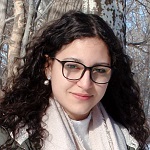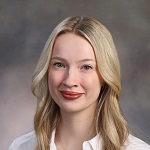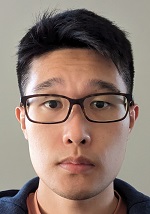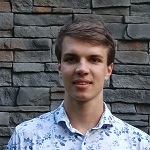
Gary Grewal
Gary Grewal is currently an Associate Professor of Computer Science at the University of Guelph. He earned his B.Sc. degree in Computer Science at Brock University, Ontario, Canada in 1990, and his Ph.D. in Engineering from the University of Guelph in 1998, working with Professors Thomas Wilson and Gordon Hayward. He is a co-founder of the Guelph FPGA CAD group. His current research interests include Artificial Intelligence for smart FPGA CAD tools, reconfigurable computing, machine learning and deep learning for CAD algorithms, and parallel computing.
In 2017 he was awarded the School of Computer Science Teaching award, and in 2018 the Distinguished Professor Award in Teaching for the College of Engineering and Physical Sciences. He has received several best paper awards, including the Michal Servit Award at the International Conference on Field Programmable Logic and Applications (ISFPGA) in 2018 and 2019, the Best Paper award at ICM 2018, and the Best Paper in the EDA/CAD Track at SBCCI 2022. His team, the Guelph FPGA CAD Group, also finished in 1st place at the 2024 ISFPGA "Runtime-First FPGA Interchange Routing Contest", which was sponsored by AMD.
- University of Guelph - Reynolds 218
- ggrewal@uoguelph.ca
- (519) 824-4120 ext. 52630
- (519) 837-0323

Shawki Areibi
Shawki Areibi received his B.Sc. degree in Computer Engineering from Tripoli University, Libya, in 1984, and M.A.Sc. and Ph.D. Degrees in Electrical/Computer Engineering from the University of Waterloo, Ontario, Canada in 1991 and 1995 respectively. From 1997 until 1999, he was an assistant professor in the Electrical and Computer Engineering department at Ryerson Polytechnic University, Toronto, Canada (now known as Toronto Metropolitan University). Currently, he is a Professor at the University of Guelph in the School of Engineering's Computer Engineering program.
In 2008 he was awarded the Distinguished Professor Award in Teaching for the College of Engineering and Physical Sciences. His research interests include VLSI Physical Design Automation, Combinatorial Optimization, Machine Learning, Reconfigurable Computing Systems, Embedded Systems and Parallel Processing. Dr. Areibi is a registered professional engineer in Ontario (P.ENG) and a Senior IEEE member. Dr. Areibi has authored/co-authored over 120 papers in international journals and conferences. He has also received several best paper awards, including Best Paper awards at RAW 2017, ICM 2018, FPL 2018 and 2019, and Best Track Paper on Track EDA/CAD at SBCCI 2022. Additionally, his FPGA CAD team won 1st place in the Runtime-First FPGA Interchange Routing Contest at ISFPGA 2024. He has served on the technical program committees for several international conferences on Computer Engineering and Embedded Systems. He has also served as a member of the program committee for GECCO, HPC, DAC and several other IEEE conferences.
- University of Guelph - Thornbrough 2335
- sareibi@uoguelph.ca
- (519) 824-4120 ext. 53819

Timothy Martin
Timothy Martin received his B.Sc. in Engineering Physics from Queen's University, and his M.Sc. and PhD in Computer Science from the University of Guelph. His research interests include CAD algorithms for FPGAs and machine learning. He received the Michal Servit Award for best paper at FPL 2018, the Best Track Paper in the EDA/CAD track at SBCCI 2022, and his team won 1st place in the ISFPGA24 Runtime-First FPGA Interchange Routing Contest.
- University of Guelph
- tmarti14@uoguelph.ca

Anita Soroush
Anita Soroush received her B.Sc. in Computer Science from Shahid Beheshti University and is currently pursuing her M.Sc. at the University of Guelph with the FPGA CAD Group. Her research focuses on the use of Graph Neural Networks (GNNs) to solve the circuit partitioning problem, a key optimization task in computer-aided FPGA design.
- University of Guelph
- asoroush@uoguelph.ca

Charlotte Barnes
Charlotte Barnes received her B.Sc. in Computer Science from the University of Guelph and is pursuing her M.Sc. with the FPGA CAD Group. Her research involves Electronic Design Automation and Machine Learning for FPGA design. Charlotte is also a recipient of the Vector Institute Scholarship in Artificial Intelligence, the Best Track Paper award at SBCCI 2022, and was a member of the GRoute team that won 1st place at the ISFPGA "Runtime-First FPGA Interchange Routing Contest" in 2024.
- University of Guelph
- cbarne07@uoguelph.ca

Tom Cheng
Tom Cheng received his B.Eng. in Computer Science from the Hong Kong University of Science and Technology (HKUST) and is now pursuing his M.Sc. in Computer Science at the University of Guelph. His research interests include Reinforcement Learning and Electronic Design Automation.
- University of Guelph

Myron Ladyjenko
Myron Ladyjenko is a Bachelor of Computing student in Software Engineering (Co-op) with a minor in Business Economics at the University of Guelph. Myron enjoys problem-solving and teamwork. His research interests include machine learning and FPGA design and optimization. In 2019 Myron was awarded a silver medal at the International Tournament of Young Mathematicians, where he presented a solution to the problem “Inequalities with a shift”, which can be used as non-trivial cases for testing and performance analysis minimization and optimization algorithms.
- University of Guelph
- mladyjen@uoguelph.ca